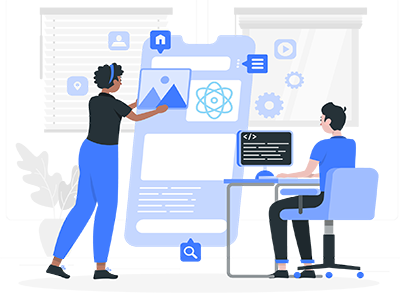Best Get to Know You Questions for Work to Build Stronger Teams
Building a cohesive and collaborative team is crucial for the success of any organization. One of the most effective ways to foster stronger connections in the workplace is through well-crafted “get to know you” questions for work. These questions go beyond surface-level small talk and encourage meaningful conversations that help team members understand each other on a deeper level. By doing so, you create a more engaged, communicative, and productive team.
Why Use ‘Get to Know You’ Questions?
- Boosting Team Morale and Engagement
Asking thoughtful questions shows that you care about your colleagues as individuals, not just coworkers. When team members feel seen and heard, it can significantly boost their morale. They’re more likely to be engaged and motivated, creating a positive work environment that benefits the whole team.
- Breaking Down Communication Barriers
Not everyone is naturally comfortable sharing or initiating conversations in the workplace. Structured get to know you questions provide an inclusive space where even the more introverted team members feel comfortable participating. This helps break down communication barriers, leading to more open and effective collaboration.
- Building Trust and Collaboration
Trust is a fundamental element of successful teams. When team members get to know each other personally and professionally, they build trust. This deeper understanding allows for better collaboration, smoother project execution, and increased creativity, as people are more comfortable sharing ideas.
Best ‘Get to Know You’ Questions for Work
The right questions can foster a sense of belonging and help teams communicate better. Here are some categories of questions to consider:
- Personal Interests & Hobbies
These questions encourage team members to share parts of their lives outside of work, allowing them to see each other as more than just colleagues.
- What’s a hobby you’ve always wanted to pursue?
This question can reveal hidden talents or interests, providing an opportunity for bonding over shared hobbies. - If you could travel anywhere in the world, where would you go?
Travel preferences often reflect a person’s values and dreams, sparking engaging conversations. - What’s the best book you’ve read recently?
A great way to discover common interests in literature or spark new conversations about learning.
- Professional Goals & Achievements
Learning about your colleagues’ career motivations and accomplishments can lead to mutual respect and a better understanding of how to support one another in the workplace.
- What’s a career accomplishment you’re proud of?
This question encourages reflection on past successes, helping team members appreciate each other’s skills and expertise. - Where do you see yourself in five years?
Understanding each other’s aspirations fosters a supportive, growth-oriented team culture. - What’s a skill you’re working on improving right now?
Sharing development goals encourages a culture of continuous learning and improvement.
- Work Preferences & Habits
By understanding how each team member works best, you can create a more productive and efficient team environment.
- Are you a morning person or a night owl?
Knowing when team members are most productive helps in scheduling meetings or setting deadlines. - Do you prefer brainstorming in groups or working alone?
Different people thrive in different work environments. Understanding these preferences allows for more effective collaboration. - How do you stay organized during busy times?
This question can lead to the exchange of productivity tips and best practices, benefiting the entire team.
- Fun and Lighthearted Questions
These questions are designed to lighten the mood, reduce stress, and build camaraderie in a playful way.
- If you were a superhero, what would your power be?
This is a fun way to bring out creativity and imagination, and can often lead to laughter. - What’s the most unusual food you’ve ever eaten?
Sharing quirky or humorous experiences like this can bring the team closer and encourage light-hearted conversation. - What’s the weirdest thing in your fridge right now?
Questions like these are great for injecting humor into team meetings, especially when tension needs to be eased.
When to Use These Questions
Choosing the right time to ask these questions is crucial for maximizing their effectiveness. Here are some ideal moments:
- At the beginning of team meetings: Kicking off a meeting with a light or fun question can set a positive and engaging tone for the rest of the session.
- During virtual team huddles: For remote teams, these questions can help bridge the physical distance and foster a sense of connection.
- At team-building events: These questions work well as icebreakers to energize the team and start conversations at formal team-building activities.
Tips for Effective Implementation
- Create a Safe and Open Environment
To ensure everyone feels comfortable answering these questions, it’s important to create a space where team members know there’s no pressure. Participation should always be voluntary, and people should feel free to answer in ways that feel right for them, whether personal or light-hearted. - Tailor Questions to Your Team’s Culture
Not every team will respond to the same types of questions in the same way. A more casual team might enjoy humorous or quirky questions, while a more formal team might prefer questions that focus on professional achievements or work preferences. Customizing your questions to fit the team’s dynamic ensures that they feel relevant and engaging. - Rotate and Evolve the Questions Over Time
To keep things interesting, avoid repeating the same questions too often. Rotate the questions regularly and encourage team members to contribute their own ideas. You could even have a “question of the week” to keep things fresh and exciting.
Conclusion
Incorporating get to know you questions for work into your team meetings or activities can greatly enhance collaboration, boost morale, and foster a more cohesive team environment. These questions help build trust, improve communication, and create a workplace where team members feel connected both personally and professionally. As you continue to nurture these connections, your team will become stronger, more engaged, and more effective at achieving collective goals.
By carefully selecting and timing these questions, you can create an environment that promotes deeper connections and more meaningful interactions, leading to a healthier, happier, and more productive team.






